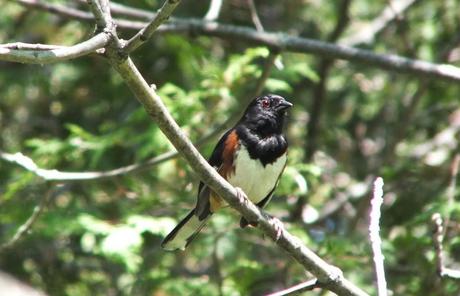
Bob and I get very excited when it comes to checking out new potential birdwatching locations. Numerous reports about sightings at Forks of the Credit Provincial Park had us headed that way in early June to see what we might see. Among the many birds spotted that day was a colourful Eastern Towhee (Pipilo erythrophthalmus).
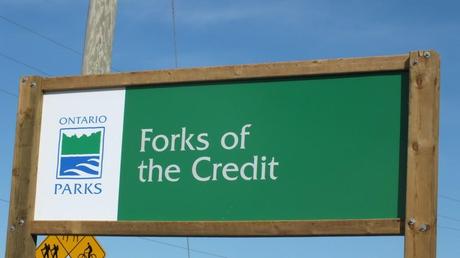
Forks of the Credit Provincial Park touts the rushing Credit River as one of its major features, but really, the park, on the whole, offers visitors exceptional hiking trails through a variety of beautiful terrains and mixed vegetation.
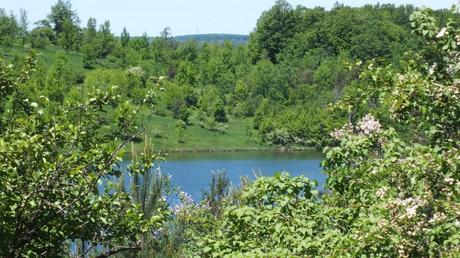
Bob and I set out from the parking lot along the Trans Canada Trail which skirts Kettle Lake along the top of numerous rolling hills.
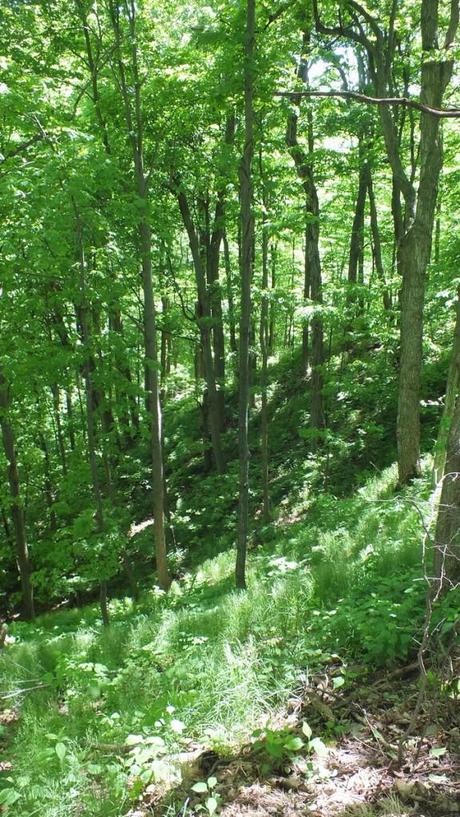
A fellow birdwatcher alerted us to his sighting of two Eastern Towhees, a pair, where the Trans Canada Trail joins up to the Bruce Trail. Bob and I sauntered along at a good pace, hoping to find the two towhees still in the same location. The Bruce Trail, at that point, followed the contours at the top of a deep valley.
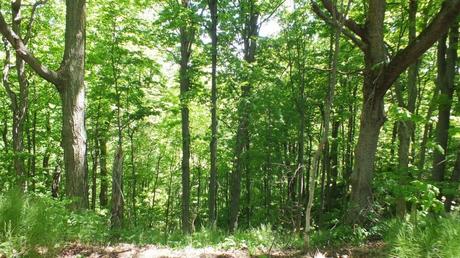
From our vantage point, we literally were looking out over the crowns of many of the trees. Cool shade dominated the lower regions of the slopes, but falling shafts of sunlight splintered on leaves and branches, shrubs and rocks, filling the air with a shattered green light. The setting was very serene as we listened intently for the telltale scratchings of a towhee.
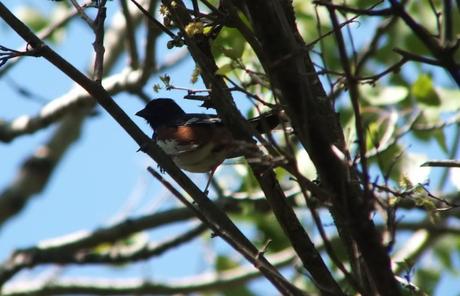
The pair of towhees was nowhere to be seen, so Bob and I thought we were out of luck. Further along the dirt path, however, just before the Bruce Trail makes a sharp turn towards the Credit River, a sharp whistling birdsong drew our attention to a branch high above our heads. The tune resembled an incomplete Northern Cardinal’s call, but there was perched a male Eastern Towhee.
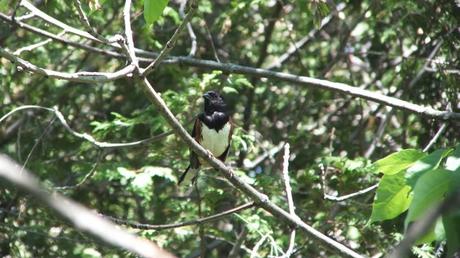
Almost before we had spotted the towhee, it moved off the branch and had us rushing to keep up. It was almost unusual to see the Eastern Towhee perched in a tree as they are more often found foraging for food on the forest floor.
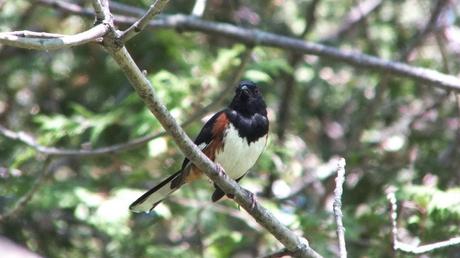
Eastern Towhees prefer bushy areas and dense thickets where there is an accumulation of leaf litter on the ground amongst which they can forage for a wide range of foods including small amphibians, several kinds of invertebrates, snakes, lizards, insects and seeds. They are not discriminating eaters.
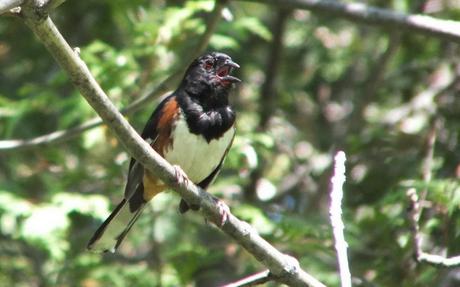
After the towhee became accustomed to our presence, the bird relaxed and launched into song. At length, it tweeted its chirpy trill of notes for the sheer pleasure of Bob and me.
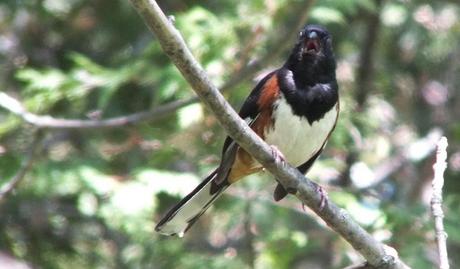
A towhee’s name actually mimics the sound of their most common call…to-whee, but their song is more lyrical and sounds like the bird is singing “drink your teeeea”.
In Bob’s video, the Eastern Towhee sings at length, while warm sunshine bathes him in light.
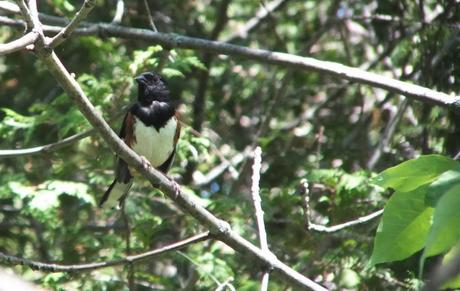
Eastern Towhees are members of the sparrow family and are quite striking specimens with their bold colouring. Their black head is set off by a red eye, and they have a conical sparrow-type bill.
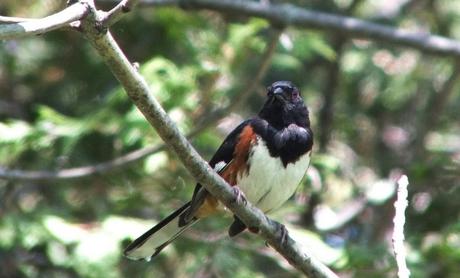
For Bob and me, this was one of the best opportunities we have had to observe a towhee. The last time was in Grimsby, Ontario, when a male towhee kept to a dense thicket where it occupied itself with the familiar backwards hop in its efforts to find something to eat. Hopefully, one of these times, we’ll be afforded a look at a female Eastern Towhee. Until then, we will keep hunting.
Checkout some of our other sightings and travels
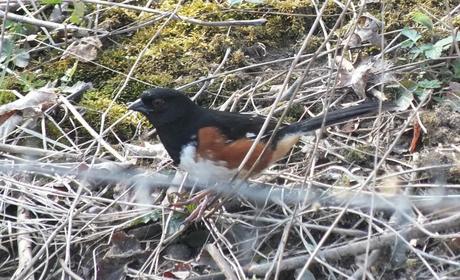
EASTERN TOWHEE SIGHTED AT BEAMER MEMORIAL CONSERVATION PARK
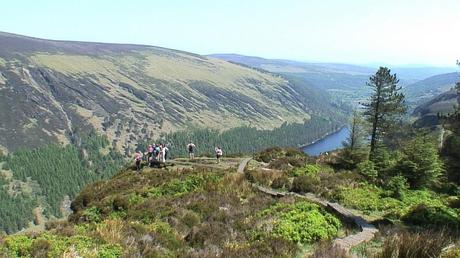
HIKING IN WICKLOW MOUNTAINS NATIONAL PARK – IRELAND
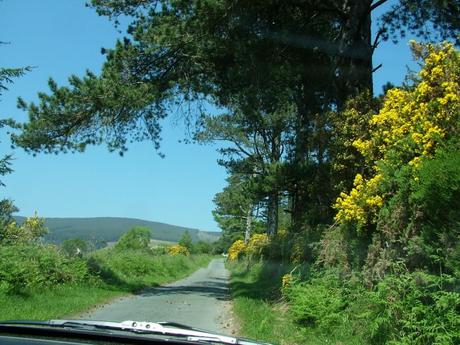
DRIVING THE INTRIGUING BACKROADS OF WICKLOW COUNTY – IRELAND
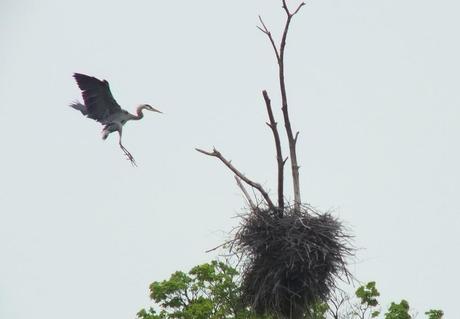
GREAT BLUE HERONS ON THEIR NEST – OXTONGUE LAKE
Frame To Frame – Bob & Jean

